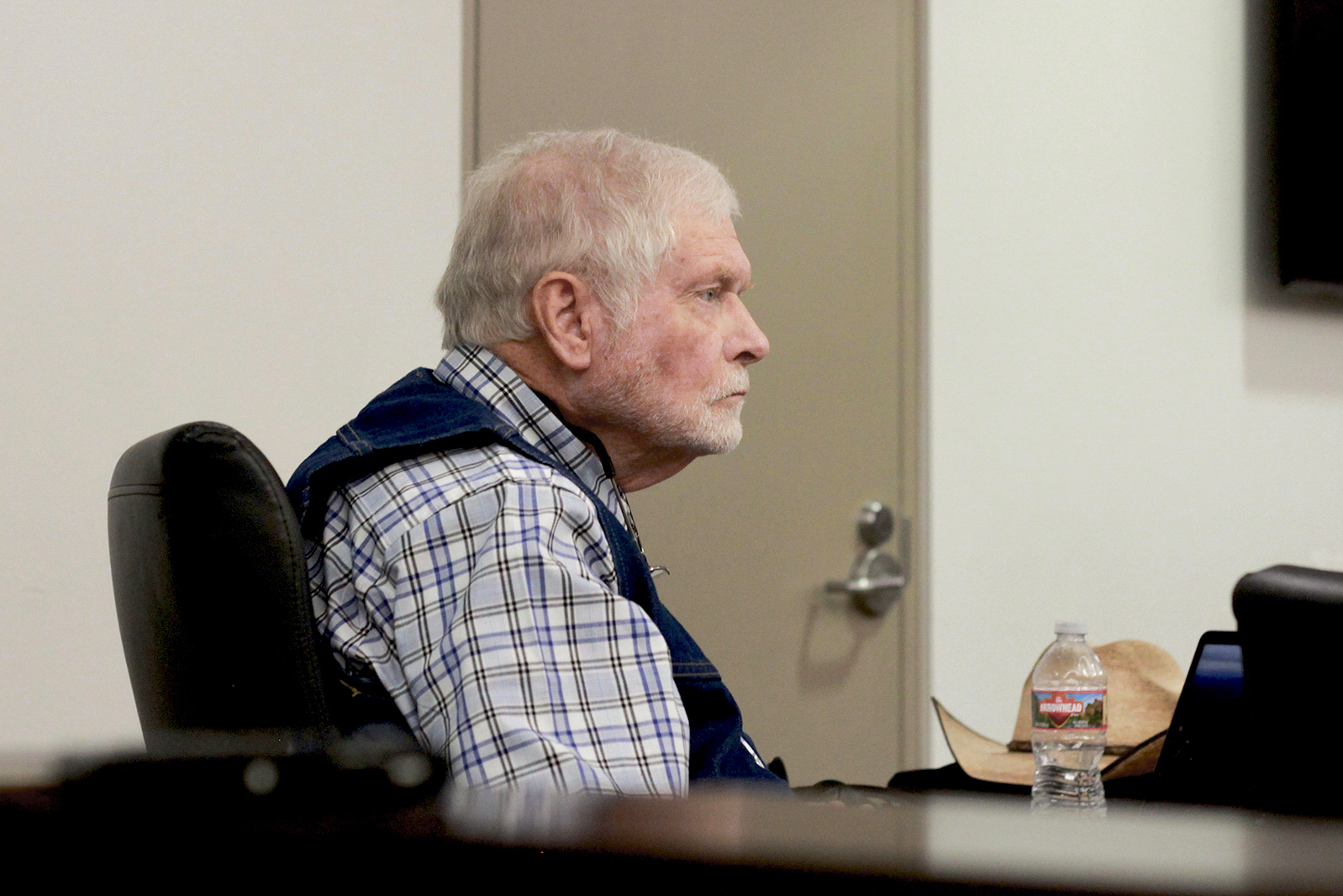Southern Arizona prosecutors announced on April 29 that they are not looking for a retrial against a rancher in the death of a Mexican illegal immigrant on his border property.
Arizona Superior Court Clerk Juan Guzman told The Epoch Times in a summary of the hearing that Santa Cruz County Chief Deputy Attorney Kimberly Hunley, who represented the state in the hearing, announced that they would not pursue a new trial in this case.
The decision was made one week after an April 22 decision by an Arizona judge to declare a mistrial in the case of the 75-year-old rancher, George Alan Kelly, who was accused of fatally shooting a Mexican man on his property, located near the U.S.–Mexico border, on Jan. 30, 2023.
The judge’s mistrial ruling came after more than two days of jury deliberation in the trial: “Based upon the jury’s inability to reach a verdict on any count,” Superior Court Judge Thomas Fink said, “This case is in mistrial.”
Mr. Kelly was originally indicted by the state for first-degree murder; however, the charge was subsequently reduced to second-degree murder, which does not require premeditation. The deceased was Gabriel Cuen-Buitimea, a 48-year-old Mexican national and illegal immigrant.
Prosecutors allege that Mr. Kelly negligently discharged nine rounds from an AK-47 rifle toward a group of men approximately 100 yards away who were trespassing on his property.
Events Surrounding the Death
The group Mr. Kelly found on his ranch included Mr. Cuen-Buitimea, and Mr. Kelly stated that he discharged warning rounds into the air without targeting anyone in particular.In the course of the proceedings, court officials accompanied jurors to Mr. Kelly’s ranch and a segment of the border. Judge Fink declined requests from the press to accompany him.
Mr. Kelly was charged with aggravated assault with a lethal weapon and one count of second-degree murder, manslaughter, or negligent homicide in relation to the shooting death of Mr. Cuen-Buitimea.
Mr. Kelly had declined a plea bargain with prosecutors that would have reduced the charge to one count of negligent homicide.
Additionally, Mr. Kelly was accused of aggravated assault against another member of the group including a man from Honduras residing in Mexico who claimed to have entered the United States that day in search of work.
The victim was found wearing a camouflage jacket, tan trousers, a black hooded sweatshirt, and tactical boots, as discovered by Mr. Kelly.
Photographs from the scene indicate that the victim was carrying a camouflage backpack with food and drink inside that was partially unzipped. In addition, he was carrying a cellphone, a two-way handheld radio, and a fanny pack with a broken buckle near his torso that was concealed in his waistband. His right fist was clenched over his chest, with grass and a twig between the digits.
The victim was seen in a singular cellphone image donning identical attire, a fanny pack across his torso, and binoculars dangling from his neck.
The Court Case
“This is not somebody who’s looking for the American Dream,” lead defense attorney Brenna Larkin said in closing. “There is no evidence this person is here for benign purposes. All the evidence points in the other direction.”Ballistics experts testified for the prosecution that they were unable to determine whether the rifle belonging to Mr. Kelly discharged the fatal shot. The unrecovered bullet did, however, appear to have originated from a “high-powered rifle” pointed in the direction of the east-facing ranch house of the defendant, which was located 116 yards from the location where the corpse of the victim was discovered.
Prosecutors and defense attorneys urged a dozen jurors in the Santa Cruz County Superior Court on April 18 to reach a fair and just verdict by applying common sense and considering all the facts presented during the trial.
The jury informed Judge Fink via a note on April 19, the second day of deliberations, that they were faced with an impasse and were unable to arrive at a verdict. The judge, following consultations with attorneys from both parties, directed the jury to “do your best” and continue deliberating until they were unable to continue.
He stated that more time should have been devoted to analyzing the case’s extensive exhibits and witness testimony.
The judge had advised the jury that in the event of a deadlock regarding the allegation of second-degree murder, they might consider reaching a verdict on either reckless manslaughter or negligent homicide, which are lesser offenses. A conviction for second-degree homicide would have resulted in a mandatory minimum of 10 years in prison.
The jury was given the case on Thursday afternoon and then deliberated for the entirety of Friday and Monday.
Allen Stein and The Associated Press contributed to this report.














